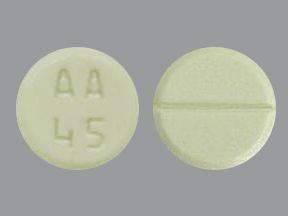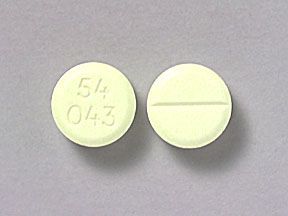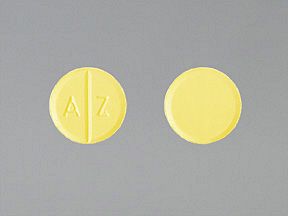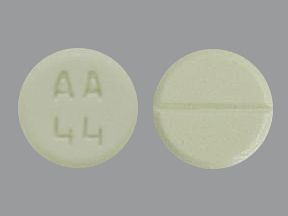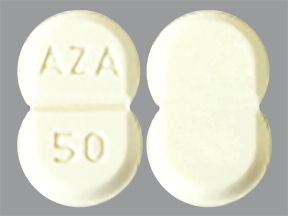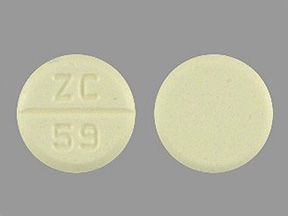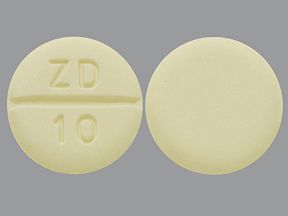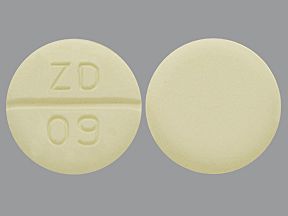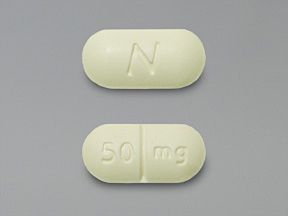- Azathioprine oral tablet is available as brand-name drug and as a generic drug. Brand names: Imuran, Azasan.
- Azathioprine comes in two forms: an oral tablet and an injectable solution.
- Azathioprine oral tablet is used to treat rheumatoid arthritis and to keep your immune system from attacking a new kidney after a transplant.
This drug has boxed warnings. These are the most serious warnings from the Food and Drug Administration (FDA). Boxed warnings alert doctors and patients about drug effects that may be dangerous.
- Long-term use of azathioprine may increase your risk of developing certain types of cancer, such as lymphoma, leukemia, and skin cancers.
Other warnings
- Increased infection risk warning: This medication decreases the activity of your immune system. This may increase your risk of infections.
- Initial treatment effects warning: Azathioprine may lead to a serious reaction that can cause nausea and vomiting, as well as:
- diarrhea
- rash
- fever
- tiredness
- muscle aches
- liver damage
- dizziness
- low blood pressure
These effects usually happen within the first few weeks of starting the medication. If your doctor stops your treatment with the drug, your symptoms should go away.
- Low blood cell counts warning: Azathioprine increases your risk of developing low blood cell counts, such as a low white blood cell count. Having certain genetic problems can also increase your risk of a blood disorder. Your doctor will give you blood tests to monitor for these blood disorders. They may lower your dosage of this drug or stop your treatment with the medication.
Azathioprine is a prescription medication. It comes in two forms: an oral tablet and an injectable solution.
Azathioprine oral tablet is available as the brand-name drugs Imuran and Azasan. It’s also available in a generic version. Generic drugs usually cost less than brand-name versions. In some cases, they may not be available in every strength or form as brand-name drugs.
This drug may be used as part of a combination therapy. That means you may need to take it with other drugs.
Why it’s used
Azathioprine is used to treat rheumatoid arthritis (RA). It’s also used to keep your immune system from attacking a newly transplanted kidney.
When you receive a kidney transplant, your immune system views the kidney as something that doesn’t belong in your body. This may cause your body to attack the kidney, which can lead to serious health problems or death. Azathioprine is used to stop your immune system from attacking your new kidney.
In RA, your body attacks your joints, which can cause swelling, pain, and loss of function. Azathioprine is used to stop your immune system from attacking your joints.
How it works
Azathioprine belongs to a class of drugs called immunosuppressants. A class of drugs is a group of medications that work in a similar way. These drugs are often used to treat similar conditions.
Azathioprine works by decreasing the activity of your body’s immune system. For RA, this keeps your immune system from attacking and damaging your joints. For a kidney transplant, the drug keeps your immune system from attacking the newly transplanted kidney.
Azathioprine oral tablet doesn’t cause drowsiness, but it can cause other side effects.
More common side effects
The more common side effects that occur with azathioprine include:
- low white blood cell counts
- infections
- stomach problems, including nausea, diarrhea, and vomiting
Serious side effects
Call your doctor right away if you have serious side effects. Call 911 if your symptoms feel life threatening or if you think you’re having a medical emergency. Serious side effects and their symptoms can include the following:
- Gastrointestinal drug hypersensitivity. Symptoms may include:
- nausea and vomiting
- diarrhea
- skin rash
- fever
- muscle aches
- increased liver enzyme levels
- liver damage
- dizziness
- low blood pressure
These problems usually happen within the first few weeks of starting the medication. If your doctor stops your treatment with this medication, your symptoms should go away.
- Pancreatitis. Symptoms may include:
- severe abdominal pain
- fatty stools
- Extreme tiredness
- Excessive weight loss
- Severe allergic reaction. Symptoms may include:
- wheezing
- chest tightness
- itching
- swelling of your face, lips, tongue, or throat
Disclaimer: Our goal is to provide you with the most relevant and current information. However, because drugs affect each person differently, we cannot guarantee that this information includes all possible side effects. This information is not a substitute for medical advice. Always discuss possible side effects with a healthcare professional who knows your medical history.
Azathioprine oral tablet can interact with other medications, vitamins, or herbs you may be taking. An interaction is when a substance changes the way a drug works. This can be harmful or prevent the drug from working well.
To help avoid interactions, your doctor should manage all of your medications carefully. Be sure to tell your doctor about all medications, vitamins, or herbs you’re taking. To find out how this drug might interact with something else you’re taking, talk with your doctor or pharmacist.
Examples of drugs that can cause interactions with azathioprine are listed below.
Gout drugs
Taking allopurinol with azathioprine can increase the levels of azathioprine in your body and increase your risk of side effects. Your doctor may lower your dosage of azathioprine if you’re taking allopurinol.
Taking febuxostat with azathioprine can increase the levels of azathioprine in your body and increase your risk of side effects. These medications should not be used together.
Inflammatory bowel disease drugs
Taking drugs called aminosalicylates with azathioprine can increase the levels of azathioprine in your body and increase your risk of bleeding disorders.
Inflammation drugs
These are TNF-modifier drugs. They work to reduce inflammation and immune system response. Taking these drugs with azathioprine may increase your risk of infection. Examples of these drugs include:
- adalimumab
- certolizumab
- infliximab
- golimumab
Medication that affects your immune system
Using cotrimoxazole with azathioprine can decrease the amount of white blood cells in your body needed to fight an infection. This increases your risk of infection.
Using this drug with azathioprine can also increase your risk of side effects of both drugs.
Blood pressure drugs
Using drugs called angiotensin-converting enzyme (ACE) inhibitors with azathioprine can increase your risk of blood disorders.
Blood thinning drug
Using warfarin with azathioprine can make warfarin less effective for you. Your doctor may closely monitor your levels of warfarin when starting and stopping treatment with azathioprine.
Hepatitis C drug
Using ribavirin with azathioprine can increase the levels of azathioprine in your body and increase your risk of side effects.
Vaccines
Receiving live vaccines while taking azathioprine may increase your risk of negative side effects from the vaccine. Examples of live vaccines include:
- nasal flu vaccine
- measles, mumps, rubella vaccine
- chickenpox (varicella) vaccine
Receiving an inactivated vaccine while taking azathioprine may make the vaccine less effective.
Disclaimer: Our goal is to provide you with the most relevant and current information. However, because drugs interact differently in each person, we cannot guarantee that this information includes all possible interactions. This information is not a substitute for medical advice. Always speak with your healthcare professional about possible interactions with all prescription drugs, vitamins, herbs and supplements, and over-the-counter drugs that you are taking.
This drug comes with several warnings.
Allergy warning
Azathioprine can cause a severe allergic reaction. Symptoms may include:
- trouble breathing
- swelling of your throat or tongue
- hives
If you develop these symptoms, call 911 or go to the nearest emergency room.
Don’t take this drug again if you’ve ever had an allergic reaction to it. Taking it again could be fatal (cause death).
Warnings for people with certain health conditions
For people with thiopurine S-methyltransferase (TPMT) deficiency: TPMT is an enzyme in your body that breaks down azathioprine. When you don’t have enough TPMT, you’re at increased risk of side effects and blood disorders from azathioprine. Your doctor may do a test to check the levels of TPMT in your body.
For people with low blood cell counts: Azathioprine raises your risk of lowered blood cell counts. Having certain genetic problems can also increase your risk. Your doctor may do blood tests, lower your dosage of azathioprine, or stop your treatment with the medication.
For people with infections: This medication decreases the activity of your immune system. This may make infections that you have even worse.
For people with liver problems: Azathioprine can increase your risk of liver problems, usually in people with kidney transplants. Your doctor will take blood tests to check how well your liver is working. Liver problems usually happen within 6 months of kidney transplant and usually go away when azathioprine is stopped.
Warnings for other groups
For pregnant people: Azathioprine is contraindicated during pregnancy when used for RA. Azathioprine is approved to treat both RA and prevent rejection after a kidney transplant. You should weigh the risks versus the benefits with your doctor when using azathioprine to prevent rejection after a kidney transplant.
It should not be used to treat RA in pregnant individuals as other treatment options are available. Some medical professionals recommend planning conception during a period of low disease activity.
Tell your doctor if you’re pregnant or plan to become pregnant. If you become pregnant while taking this drug, call your doctor right away.
For people who are nursing: Azathioprine passes into breast milk and may cause side effects in a child who is nursed. Nursing isn’t recommended while taking this medication.
For seniors: The safety and effectiveness of azathioprine haven’t been established in people aged 65 years and older.
For children: The safety and effectiveness of azathioprine haven’t been established in people under the age of 18 years.
All possible dosages and forms may not be included here. Your dose, form, and how often you take it will depend on:
- your age
- the condition being treated
- how severe your condition is
- other medical conditions you have
- how you react to the first dose
Drug forms and strengths
Generic: Azathioprine
- Form: oral tablet
- Strengths: 25 mg, 50 mg, 75 mg, 100 mg
Brand: Imuran
- Form: oral tablet
- Strength: 50 mg
Brand: Azasan
- Form: oral tablet
- Strengths: 25 mg, 50 mg, 75 mg, 100 mg
Dosage for kidney transplant
Adult dosage (ages 18 years and older)
Dosage is based on a person’s weight in kilograms (kg).
- Typical starting dosage: 3–5 mg per kilogram of body weight daily, beginning at the time of transplant. In certain cases, this dose may be given 1–3 days before the kidney transplant.
- Maintenance dosage: 1–3 mg/kg of body weight per day.
Child dosage (ages 0–17 years)
A safe and effective dose hasn’t been established for this age group.
Dosage for rheumatoid arthritis
Adult dosage (ages 18 years and older)
Dosage is based on a person’s weight in kilograms (kg).
- Typical starting dosage: 50–100 mg, taken once per day or split into two daily doses.
- Dosage increases: After 6–8 weeks of being on the initial dosage, your doctor may increase your dosage by 0.5 mg/kg of body weight per day. After that, your doctor may make dosage changes every 4 weeks if needed.
- Maximum dosage: The maximum daily dosage is 2.5 mg/kg of body weight per day.
- Maintenance dosage: Doses can be lowered by 0.5 mg/kg of body weight per day every 4 weeks.
Child dosage (ages 0–17 years)
A safe and effective dose hasn’t been established for this age group.
Special dosage considerations
For people with kidney problems: Your dosage of azathioprine may need to be lowered if you have kidney problems that prevent you from urinating regularly.
For people with TPMT deficiency: Your dosage of azathioprine may need to be lowered if tests show that you have TPMT deficiency. This enzyme helps to break down the drug. Not having enough of the enzyme can lead to an increased risk of side effects from this drug, including bleeding problems.
Disclaimer: Our goal is to provide you with the most relevant and current information. However, because drugs affect each person differently, we cannot guarantee that this list includes all possible dosages. This information is not a substitute for medical advice. Always speak with your doctor or pharmacist about dosages that are right for you.
Azathioprine oral tablet is used for long-term treatment. It comes with serious risks if you don’t take it as prescribed.
If you don’t take it at all: If you’re taking it for a kidney transplant, you’re at increased risk of having negative, possibly fatal side effects from your transplant, or having to undergo another kidney transplant.
If you’re taking it for RA, your symptoms may not improve or they may get worse over time.
If you stop taking it suddenly: If you’re taking this drug for a kidney transplant and you stop taking it suddenly, you may experience transplant rejection and kidney failure.
If you’re taking this drug for RA and you stop taking it suddenly, your symptoms of RA may come back again.
If you don’t take it on schedule: You may not see a full benefit of this medication. If you double up your dose or take it too close to your next scheduled time, you may be at higher risk of having serious side effects.
What to do if you miss a dose: If you miss a dose, take it as soon as you can. However, if it’s just a few hours until your next dose, skip the missed dose and take the next one only.
Never try to catch up by taking two doses at once. This could result in dangerous side effects.
If you take too much: You could have dangerous levels of the drug in your body. Symptoms of an overdose of this drug can include:
- nausea
- vomiting
- diarrhea
- sore throat, fever, chills, and other signs of infection
If you think you’ve taken too much of this drug, call your doctor or seek guidance from the American Association of Poison Control Centers at 800-222-1222 or through their online tool. But if your symptoms are severe, call 911 or go to the nearest emergency room right away.
How to tell if the drug is working: If you’re taking this drug for a kidney transplant, your kidneys should be functioning and you shouldn’t have symptoms of organ rejection. These symptoms can include discomfort or ill feeling, fever, flu-like symptoms, and pain or swelling around the organ. Your doctor will also do blood tests to check for kidney damage.
If you’re taking this drug for RA, you should have less swelling and pain in your joints. You should also be able to move around better. These effects should happen after about 12 weeks of being on the medication.
Keep these considerations in mind if your doctor prescribes azathioprine for you.
General
- Take this medication after a meal. This may help lower your risk of stomach problems.
Storage
- Store this medication at a temperature between 59°F and 77°F (15°C and 25°C).
- Protect this drug from light.
- Don’t freeze azathioprine.
- Don’t store this medication in moist or damp areas, such as bathrooms.
Refills
A prescription for this medication is refillable. You should not need a new prescription for this medication to be refilled. Your doctor will write the number of refills authorized on your prescription.
Travel
When traveling with your medication:
- Always carry your medication with you. When flying, never put it into a checked bag. Keep it in your carry-on bag.
- Don’t worry about airport X-ray machines. They can’t harm your medication.
- You may need to show airport staff the pharmacy label for your medication. Always carry the original prescription-labeled container with you.
- Don’t put this medication in your car’s glove compartment or leave it in the car. Be sure to avoid doing this when the weather is very hot or very cold.
Clinical monitoring
Your doctor may do certain tests during your treatment with this drug. They may include:
- Blood tests: Your doctor may do blood tests to check for bleeding disorders once per week during the first month of treatment with this medication. After that, they will do blood tests twice per month for the next two months. If your doctor changes your dosage of azathioprine, they will do blood tests once per month or more often.
- Liver and kidney tests: Your doctor may do blood tests periodically to check how well your liver and kidneys are working.
- Test for TPMT deficiency: Your doctor may do a blood test to see if you have TPMT deficiency, because this condition may cause bleeding disorders if you take this drug.
Sun sensitivity
People taking this medication may have a higher risk of skin cancer from too much sun exposure. Wear sunscreen with a high protection factor. Also wear protective clothing, such as a hat and long sleeves.
Availability
Not every pharmacy stocks this drug. When filling your prescription, be sure to call ahead to make sure your pharmacy carries it.
Prior authorization
Many insurance companies require a prior authorization for this drug. This means your doctor will need to get approval from your insurance company before your insurance company will pay for the prescription.
There are other drugs available to treat your condition. Some may be better suited for you than others. Talk with your doctor about other drug options that may work for you.
Disclaimer: Healthline has made every effort to make certain that all information is factually correct, comprehensive, and up to date. However, this article should not be used as a substitute for the knowledge and expertise of a licensed healthcare professional. You should always consult your doctor or another healthcare professional before taking any medication. The drug information contained herein is subject to change and is not intended to cover all possible uses, directions, precautions, warnings, drug interactions, allergic reactions, or adverse effects. The absence of warnings or other information for a given drug does not indicate that the drug or drug combination is safe, effective, or appropriate for all patients or all specific uses.

